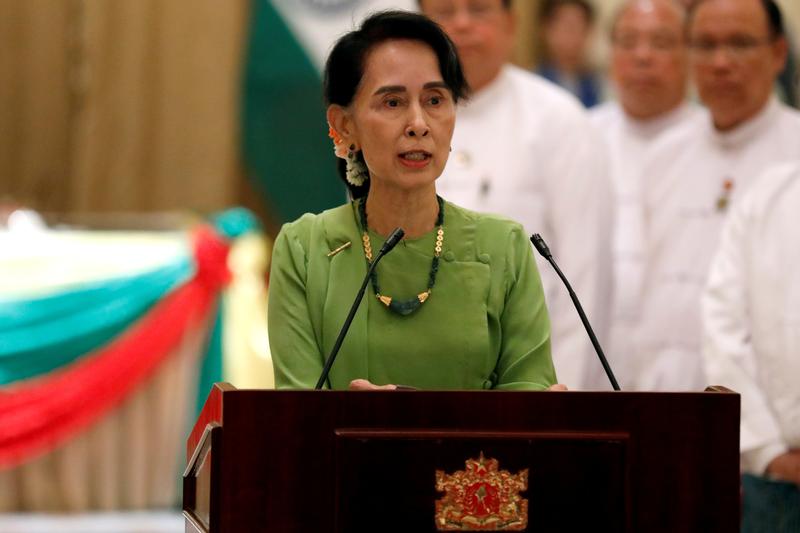Business confidence among entrepreneurs in Burma dropped “drastically” this year due to unclear economic policy, a survey shows on Tuesday, amid growing frustration over leader Aung San Suu Kyi’s management of the fledgling economy.
Suu Kyi has identified economic reform as a key goal to complete Burma’s democratic transition after decades of isolation under military rule, but the sluggish pace of change has disappointed many in one of the region’s poorest countries.
Investors are also wary that Burma–officially known as Myanmar–may face reinstatement of some sanctions over its treatment of its Rohingya minority, further threatening Suu Kyi’s promise of a reformist government that would attract much-needed foreign investment.
Burma’s short-term business confidence dropped to 49 percent in 2017 from 73 percent a year ago, according to a survey by consultancy Roland Berger and the Union of Myanmar Federation of Chambers of Commerce and Industry.
The study, which reflects views of about 500 local and international business owners in Myanmar, said the “lack of a clear economic policy and plan” is to blame for the drop.
“What the private sector seems to be looking for are much more specific plans, endorsed by the government,” said Thomas Klotz, managing partner of Roland Berger in Southeast Asia.
“What is missing so far is the communication of an overall economic transformation roadmap, with clear targets, timeline and quick wins.”
The survey was conducted earlier this year before the latest violence in Burma’s western Rakhine state that the United Nations said was “ethnic cleansing”, which Klotz said was “likely to have further reduced investor confidence in Myanmar.”
Other challenges facing companies in Burma include lack of trained staff, unpredictable legislative environment, and selective law enforcement, the survey showed.
Reuters exclusively reported on Monday that Burma will delay a long-awaited corporate reform that would open the door further to foreign investment, dealing a fresh blow to investor confidence in Suu Kyi’s administration.
Once one of the strongest economies in Southeast Asia before independence in 1948, Burma sank into poverty after decades of central planning and a failed experiment with socialism which involved the nationalization of many of its industries.
Burma’s ruling generals ceded power to a semi-civilian government in 2011, which embarked on sweeping economic reforms and slowly began loosening their grip on business, but their associates continue to dominate large parts of the economy.
The government last year issued a thin economic policy that many said lacked detail or plans for how to accomplish the goals. In April, Burma passed a long-delayed investment law, simplifying procedures and giving foreign investors equal treatment to the locals.
Growth in both foreign investment and gross domestic product have slowed since Suu Kyi’s National League for Democracy took office last year after years of junta-era rules.
Burma recorded monthly average foreign investment of $739 million so far this year, below levels reported in 2015 under the former military-backed government, according to Roland Berger.
[related]
The International Monetary Fund had downgraded Burma’s gross domestic product growth forecast this year to 6.7 percent from 7 percent.
But Klotz said 88 percent of business owners remained optimistic about Burma’s long-term outlook thanks to the potential of the market of over 50 million population.
“‘More and faster’ will hopefully be the motto for the government’s economic agenda in 2018,” he said.



